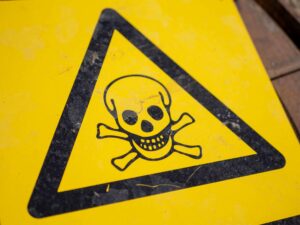
Understanding Heat Stress: Causes, Symptoms, and Prevention
As the sun blazes overhead, and temperatures soar, it’s crucial to be aware of the potential dangers associated with heat stress. Whether you’re working outdoors, exercising, or simply enjoying a sunny day, this can pose a significant health risk.
In this article, we will delve into the basics of heat stress, exploring its causes, common symptoms, and practical steps to prevent it in various settings, including the workplace.
What Is Heat Stress?
Heat stress, also known as heat exhaustion or heat-related illness, occurs when your body is unable to regulate its temperature properly in hot environments. It is a serious condition that can lead to heat stroke, which can be life-threatening if not treated promptly.
It typically results from a combination of high temperatures, humidity, and physical exertion, causing your body to lose its ability to cool down effectively.
Causes of Heat Stress
High Temperatures
The most obvious cause is exposure to extreme heat. When the mercury rises, your body must work harder to stay cool.
High Humidity
High humidity levels make it challenging for sweat to evaporate from your skin, which is a critical cooling mechanism for the body.
Physical Exertion
Engaging in strenuous physical activities in hot weather can significantly increase your risk of heat stress. Your body generates more internal heat when you’re active, and this added heat must be dissipated.
Dehydration
Inadequate fluid intake can lead to dehydration, making it even more challenging for your body to regulate its temperature. Dehydration reduces your ability to sweat, which is a vital cooling mechanism.
Common Symptoms of Heat Stress
Recognising the symptoms is essential for timely intervention. If you or someone you know experiences any of the following signs, it’s crucial to take immediate action.
Excessive Sweating
While sweating is the body’s natural response to heat, excessive sweating can lead to dehydration.
Fatigue
Feeling unusually tired or weak can be a telling sign.
Dizziness and Fainting
A drop in blood pressure caused by dehydration and excessive sweating can result in dizziness or even fainting.
Nausea and Vomiting
Heat stress may cause nausea, vomiting, and stomach cramps.
Headache
A throbbing headache, often accompanied by confusion, can be an indication of heat stress.
Prevention of Heat Stress
Prevention is paramount, particularly in situations where you have some control over your environment. Here are practical steps to help you avoid heat-related illnesses:
Stay Hydrated
Drink plenty of water, even if you don’t feel thirsty. Avoid alcohol and caffeine, as they can contribute to dehydration.
Wear Appropriate Clothing
Choose lightweight, loose-fitting, and light-coloured clothing to reflect the sun’s rays.
Take Breaks
In hot weather, take regular breaks in a cool, shaded area. This is especially important for outdoor workers who are exposed to high temperatures for extended periods.
Acclimatise
If you’re not accustomed to the heat, give your body time to adjust. Start slowly and gradually increase your exposure to high temperatures.
Use Sunscreen
Protect your skin from sunburn by applying sunscreen with a high SPF rating.
Know the Warning Signs
Educate yourself and those around you about the symptoms of heat stress. Early recognition is key to preventing a more severe heat-related illness.
Create a Heat-Safe Workplace
If you’re an employer, ensure that your workplace has adequate cooling systems, provides access to water, and allows for rest breaks.
Conclusion
In conclusion, heat stress is a serious health concern that can affect anyone exposed to high temperatures. Understanding its causes, recognising its symptoms, and taking preventive measures are essential for staying safe in hot weather.
By following these practical steps, we can enjoy the sun and warmth without putting our health at risk, whether we’re at work or play. Remember, prevention is the key to avoiding the potentially severe consequences of heat stress.








